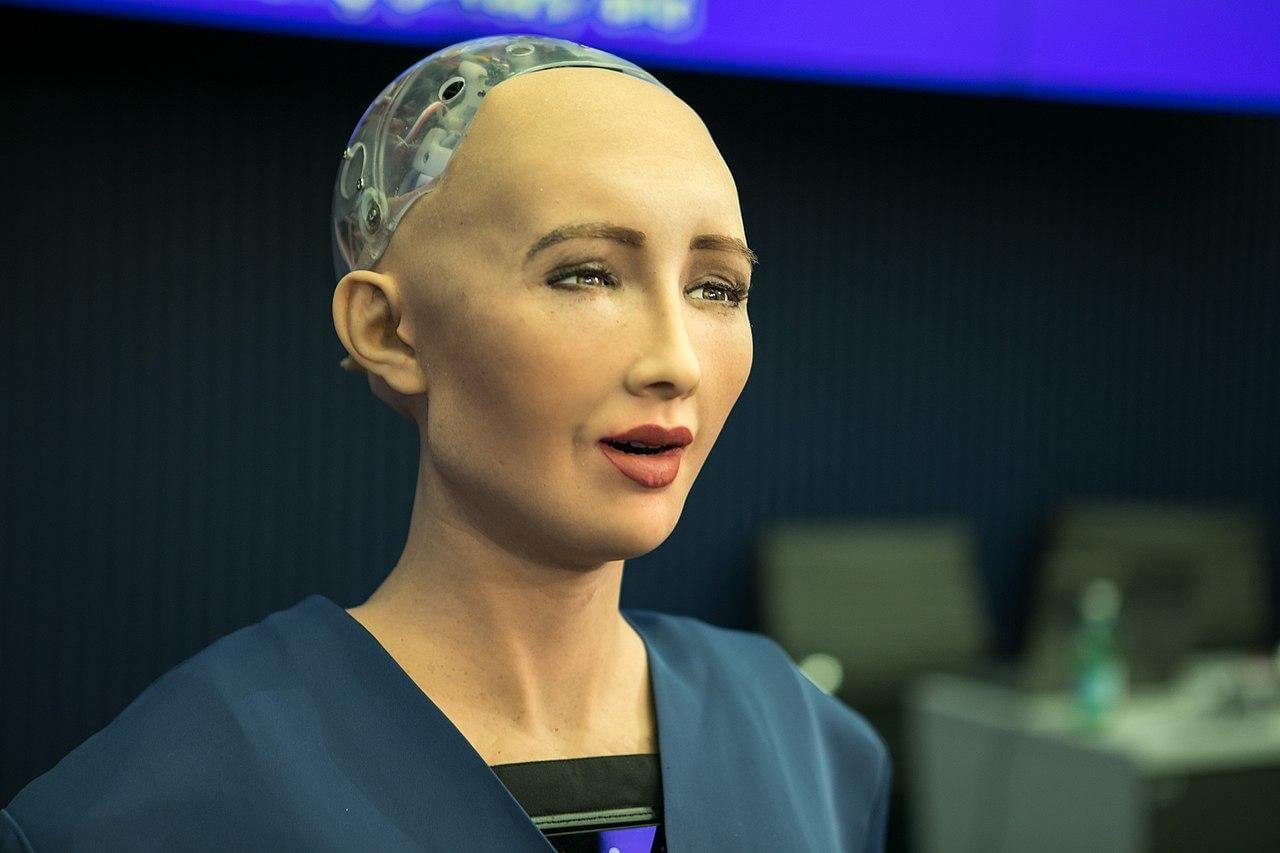Is Sophia the Robot Real AI
Humanoid Robot Sophia is a collaborative effort to create the first AI human robot. Sophia was created to be a social companion for the elderly.

Sophia is a Saudi Arabian social humanoid robot developed by the Hong Kong-based company Hanson Robotics.
The first social humanoid robot, Sophia has been billed as the first “person” ever to appear in public. She is designed to act as a companion and caretaker for people with disabilities and seniors in hospitals.
Sophia was activated on February 14, 2016.
At the Future Investment Summit, held in Riyadh on October 25, 2017, Sophia was given Saudi Arabian citizenship. At the event, she delivered a five-minute speech that raised issues regarding artificial intelligence (AI), mixed with jokes and quotes from Steve Jobs and Alan Turing regarding the potential dangers of AI. The event received coverage from major media outlets around the world.
In November 2017, Sophia was named the United Nations Development Programme's first Innovation Champion.
From science fiction to reality the evolution of artificial intelligence
A realistic robot that found its inspiration, design and name from ancient Egyptian queen Nefertiti, Audrey Hepburn, and its inventor's wife, Amanda Hanson has been created by engineers at the University of Sydney. The robot is modeled after the human-like appearance of ancient Egyptian statues but has been improved to resemble humans in a variety of ways, sophia body is crazy technical.
As of 2018, Sophia's architecture includes scripting software, a chat system, and OpenCog, an AI system designed for general reasoning. Sophia imitates human gestures and facial expressions and is able to answer certain questions and to make simple conversations on predefined topics (e.g. on the weather).
Sophia uses speech recognition technology from Alphabet Inc. (the parent company of Google) and is "designed to get smarter over time".
What does interacting with Sophia look like?
Hanson's intention is that Sophia will be able to preform various tasks such as caring for people at nursing homes, helping crowds at large events or parks. He has said that he hopes that the robot will eventually be able to interact with other humans sufficiently and gain social skills. Hanson’s website includes an FAQ section which states "You can even teach Sophia how to play with you, or give her your favorite toys."
With a gentle voice and charming expressions, Sophia's facial features are designed to appeal to anyone of all ages.
When I first saw Sophia, I was at the edge of my seat. A house-sized robot who could speak to me? This immense artificial intelligence that could converse with humans just like a human? When she asked me how old I am, I couldn't help but answer her. 'I’m eighty-one years old,' I said. For a brief moment, she looked surprised. And then something clicked in her eyes and she spoke again—this time without hesitation. 'I'm fifty-two.'
Criticism of Sophia
According to The Verge, Hanson often exaggerates and "grossly misleads" about Sophia's capacity for consciousness, for example by agreeing with Jimmy Fallon in 2017 that Sophia was "basically alive". In a piece produced by CNBC which indicates that their own interview questions for Sophia were heavily rewritten by its creators, Goertzel responds to the Hanson quote by suggesting Hanson means Sophia is "alive" in the way that, to a sculptor, a piece of sculpture becomes "alive" in the sculptor's eyes as the work nears completion.
Technologies including facial recognition, speech recognition and autonomous cars are moving into the spotlight, indicating the rapid emergences of artificial intelligence (AI) in our every day lives. We have made breakthrough since developing AI, which can be used to achieve low-energy production, low-cost medical services, high-quality educational resources and other fair, sustainable development goals. As an accelerator for social and business development, AI has given rise to unprecedented governance and ethical challenges. Rules and regulations governing the use of and application of AI in our daily lives are catching up with reality. This poses ethical questions and challenges to providers of services using AI.
